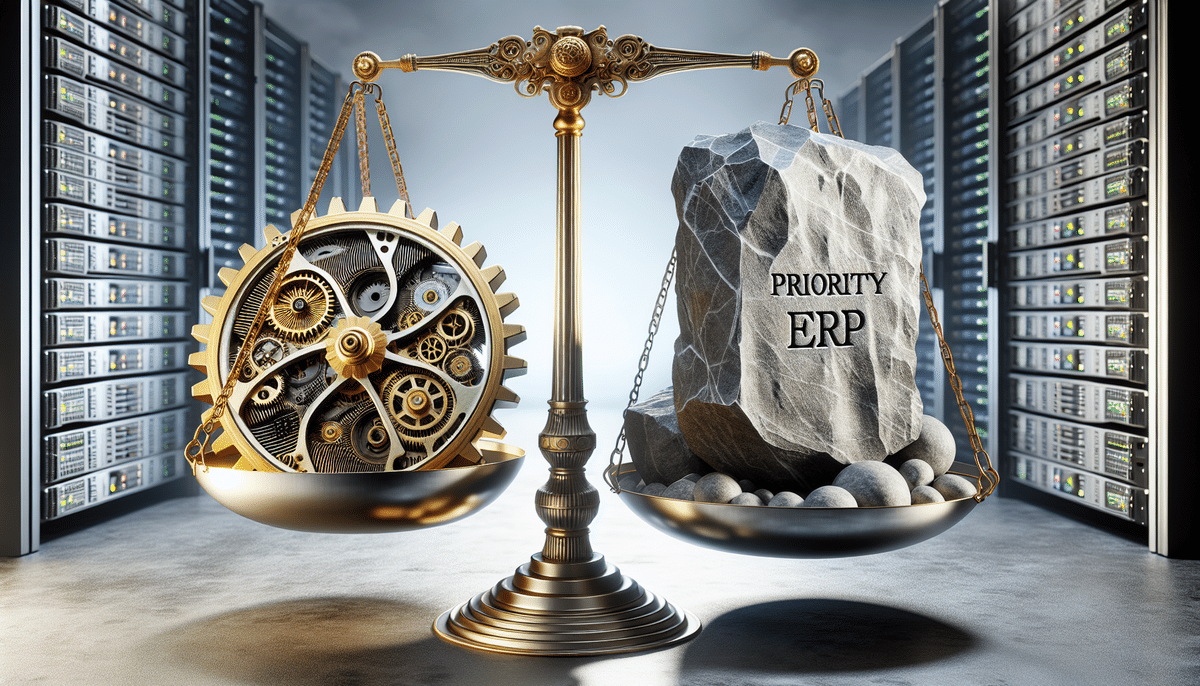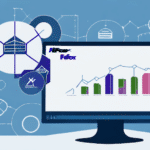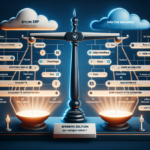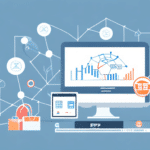Priority ERP vs Epicor ERP: A Comprehensive Comparison
Enterprise Resource Planning (ERP) systems are pivotal for businesses aiming to streamline operations, enhance efficiency, and drive growth. Among the myriad of ERP solutions available, Priority ERP and Epicor ERP stand out as popular choices. This article delves into an in-depth comparison of these two systems, providing valuable insights to help business owners and managers make informed decisions.
Introduction to Priority ERP and Epicor ERP
Priority ERP is tailored for small to medium-sized businesses across various industries. It offers modules for financial management, manufacturing, project management, CRM, HR management, and supply chain management. Known for its user-friendly interface and flexibility, Priority ERP can be easily customized to meet unique business needs.
Epicor ERP, designed for mid-market and large enterprises, delivers a comprehensive suite of modules including finance, materials management, production, customer management, and supply chain management. Epicor ERP is renowned for its advanced functionality, robust analytics, and scalability, making it suitable for businesses with complex operations.
Key Features and Functionalities
Priority ERP Features
- Financial Management: Comprehensive tools for accounts receivable, accounts payable, general ledger, and cash management, supporting multi-currency and inter-company transactions.
- Manufacturing Management: Supports make-to-order, make-to-stock, and engineer-to-order processes with tools for production planning, job scheduling, MRP, and quality control.
- Project Management: Facilitates estimating, resource allocation, budgeting, forecasting, expense tracking, and progress reporting.
- HR Management: Manages employee data, payroll, benefits, attendance, recruitment, onboarding, and performance management.
Epicor ERP Features
- Finance: Advanced financial tools for accounts payable, receivable, general ledger, cash management, multi-currency transactions, and automated bank feeds.
- Production Management: Supports make-to-order, make-to-stock, and configure-to-order with comprehensive production planning, job scheduling, MRP, and quality management.
- Customer Management: Advanced CRM, sales management, service management, and marketing automation for creating and managing customer profiles, tracking leads, and generating sales forecasts.
- Supply Chain Management: Tools for purchasing, inventory management, logistics, transportation, and optimizing stock levels.
- Human Resources Management: Comprehensive HR tools for employee data, benefits, payroll, performance tracking, training, and development.
- Business Intelligence and Analytics: Real-time dashboards, customizable reports, and predictive analytics for actionable business insights.
Ease of Use and User Experience
Both Priority ERP and Epicor ERP prioritize user-friendly interfaces, but their suitability varies based on business complexity. Priority ERP's intuitive design and customizable interface make it ideal for smaller businesses with straightforward processes. In contrast, Epicor ERP's robust and feature-rich interface caters to larger enterprises but may require additional training and technical expertise.
Support is another critical factor. Priority ERP offers extensive support resources, including tutorials, customer service, and a community forum. Epicor ERP provides 24/7 support, a dedicated customer portal, and various training programs to ensure users can effectively leverage the system's capabilities.
Cost and Pricing Models
The cost of implementing an ERP system hinges on the business size, required features, and deployment options. Priority ERP offers a flexible pricing model based on the number of users and modules selected, often presenting a more affordable option for small to medium-sized businesses.
Epicor ERP employs a more complex pricing structure, typically requiring businesses to request a customized quote. While potentially more expensive, Epicor ERP's scalability and comprehensive feature set can provide significant value for larger enterprises with extensive needs.
Scalability and Customization
Both ERP systems are designed to grow with businesses. Priority ERP supports up to 1,000 users and multi-company operations, making it suitable for expanding small to medium-sized businesses. It offers drag-and-drop customization tools, enabling businesses to tailor the system without extensive technical skills.
Epicor ERP scales to accommodate up to 5,000 users and supports large, multi-site enterprises. Its customization capabilities are more advanced, allowing for intricate modifications to meet the specific demands of complex operations, though this may necessitate specialized technical expertise.
Integration and Support Options
Integration capabilities are crucial for seamless business operations. Priority ERP provides RESTful APIs and web services, facilitating integration with various third-party applications like CRM and accounting software.
Epicor ERP offers a comprehensive middleware solution that ensures smooth integration with a wide array of systems and tools, enhancing operational efficiency and data consistency.
In terms of support, Priority ERP offers multiple channels including email, phone, and live chat, alongside a knowledge base and community forum. Epicor ERP complements this with 24/7 support and a dedicated customer portal, ensuring users have access to assistance whenever needed.
Security and Implementation
Security is paramount for ERP systems. Both Priority ERP and Epicor ERP implement robust security measures:
- Priority ERP: Encrypted data transmission, two-factor authentication, and role-based access control ensure data protection and system integrity.
- Epicor ERP: Role-based security, data encryption, and proactive system monitoring provide comprehensive security safeguards.
The implementation process varies between the two systems. Priority ERP offers a streamlined implementation that can be completed within weeks, minimizing business disruption. Epicor ERP's implementation is more extensive, potentially taking several months or years, especially for large enterprises with complex requirements. This thorough process ensures that Epicor ERP is fully tailored to the organization's needs.
User Reviews and Testimonials
Feedback from users highlights the strengths and areas for improvement for both ERP systems. Priority ERP is lauded for its affordability, ease of use, and customizable features, making it a favorite among small to medium-sized businesses.
Epicor ERP receives praise for its advanced functionality, scalability, and robust integration capabilities. However, some users note that Epicor ERP can be complex and may require significant training to utilize effectively.
For detailed user experiences, platforms like Capterra and G2 offer comprehensive reviews and ratings.
Conclusion: Choosing Between Priority ERP and Epicor ERP
Both Priority ERP and Epicor ERP offer robust solutions tailored to different business sizes and needs. Priority ERP is ideal for small to medium-sized businesses seeking an affordable, user-friendly, and customizable system. In contrast, Epicor ERP is better suited for mid-market to large enterprises requiring advanced features, scalability, and comprehensive integration capabilities.
When selecting an ERP system, businesses should assess their specific needs, budget, and growth projections to determine which solution offers the best value and aligns with their operational goals.
For more information on ERP systems and to explore further options, refer to authoritative sources such as Gartner's ERP Glossary and industry reports from Forbes.






















